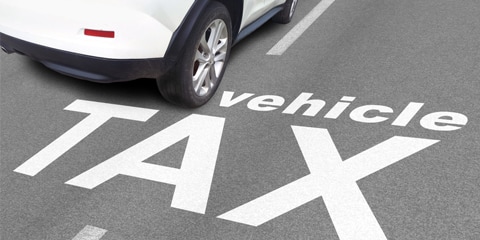Electric vehicles make excellent company cars from a tax perspective, offering significant savings. While EV’s can be more expensive initially, the reduced BiK rates and various incentives can offset the higher procurement costs. This guide will give you an introduction of some of the current taxable benefits of an EV as a company car. It is only intended as a guide and regulations change, so please contact an accountant to receive up to date information.
What is Company Car Tax?
Company cars, provided by employers as a benefit, are subject to a tax known as Benefit-in-Kind (BiK). The BiK tax is determined by the car’s carbon dioxide (CO2) emissions and its value. Higher CO2 emissions and higher car values result in higher tax percentages. Electric vehicles (EVs), which produce no CO2 emissions on the road, benefit from significantly lower BiK rates compared to petrol and diesel cars.
How Does Company Car Tax Work?
The amount of company car tax you pay is influenced by the car’s worth (its P11D value) and its CO2 emissions, as well as your personal tax bracket. BiK rates range from 2% to 37%, with the most polluting cars occupying the higher end of the scale. Electric cars attract a low 2% BiK rate.
The P11D value includes the car’s cost plus VAT, options, and delivery charges from new. For instance, if you have an electric company car worth £40,000, 2% of this amount is £800, which is the taxable value. Depending on your tax bracket, you would pay a percentage of this taxable value. For a 20% taxpayer, this equates to £160 annually, while a 40% taxpayer would pay £320 annually.
Tax on Electric Company Cars
The current BiK rate for electric cars is 2%, and this rate will remain unchanged for the 2023/24 and 2024/25 financial years. After this period, the rate will increase by 1% annually for the next three years, reaching 5% by 2027/28. Despite these incremental increases, the rates for EVs will still be significantly lower than those for conventional petrol or diesel cars, which can attract BiK rates of up to 25%.
Company Car Tax Comparison
To illustrate the tax benefits of electric company cars, lets compare an electric vehicle (EV) and a petrol vehicle, both worth £40,000, for a 40% tax bracket employee.
- Electric Car: 2% of £40,000 is £800. A 40% taxpayer pays 40% of £800, which is £320 annually or £26.67 monthly.
- Petrol Car: A petrol car emitting 130g/km of CO2 falls into the 31% BiK rate. 31% of £40,000 is £12,400. A 40% taxpayer pays 40% of £12,400, which is £4,960 annually or £413.33 monthly.
The annual tax savings for choosing an electric car over a petrol car in this scenario is over £4,500.
Tax on Hybrid Company Cars
BiK rates for hybrids depend on their electric-only range. Conventional hybrids, which can’t be charged from a plug and typically emit more than 50g/km of CO2, are taxed similarly to petrol and diesel cars. Plug-in hybrids (PHEVs), however, generally emit less than 50g/km of CO2 and can travel considerable distances in electric mode, earning them more favourable BiK rates:
- Less than 30 miles: 14% BiK
- 30-39 miles: 12% BiK
- 40-69 miles: 8% BiK
- 70-129 miles: 5% BiK
- Over 130 miles: 2% BiK
Are Electric Vans Liable to Company Car Tax?
Taxation on electric vans depends on their usage. If a van, petrol or diesel, is only used for work purposes (including commuting), it is not subject to tax. “Insignificant” personal use, such as occasional trips, also incurs no tax. However, “significant” personal use of a petrol or diesel van results in a flat taxable amount of £3,600 for the 2022/23 financial year. For a 20% taxpayer, this is £720 annually. In contrast, electric vans are exempt from this tax, even if used as personal vehicles.
Other Incentives for Businesses to Go Electric
Businesses are encouraged to switch to electric cars through various incentives:
- Workplace Charging Scheme: Covers 75% of the cost of purchase and installation of EV charge points, up to £350 per socket for up to 40 sockets.
- Plug-in Vehicle Grants: Government grants for electric vans, trucks, and taxis, ranging from £2,500 for small vans to £25,000 for large trucks.
- Reduced Employer NICs: Lower National Insurance contributions based on the lower CO2 emissions of electric vehicles.
- Reduced Road Tax: Electric cars are currently exempt from road tax, though this will change in 2025 when they will be taxed similarly to petrol and diesel cars.
- Capital Claim Allowances: Favourable capital allowances for electric vehicles, allowing businesses to deduct more of their value from profits for tax purposes.
- Salary Sacrifice Schemes: These schemes are more attractive for electric cars, providing further financial benefits.
- Advisory Fuel Rate for EV Charging: Favourable rates for business-paid EV charging.
- Exemption from Emission and Congestion Charges: EV’s are often exempt from these charges, adding to the financial incentives.



